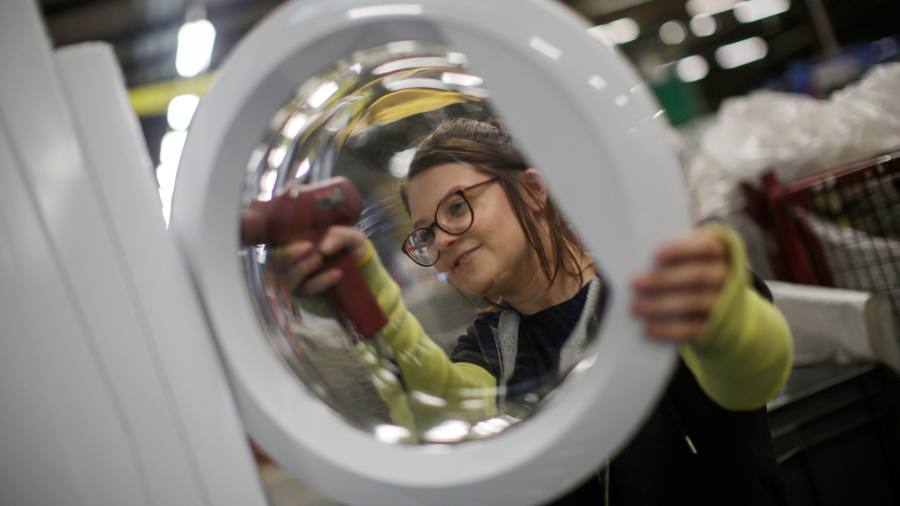
The UK government has bowed to renewed pressure from industry and announced another postponement to the introduction of a new post-Brexit “UKCA” product safety mark — the third delay in less than two years.
After Brexit, the UK government said it wanted to create a British rival to the EU’s “CE” quality mark which assures the safety of electronic, industrial and consumer goods, with an original implementation date of January 2022. The latest delay means the scheme will now come into force at the start of 2025.
Industry groups have repeatedly rejected the UKCA mark as burdensome, expensive and impractical. They welcomed the latest extension, but warned it was creating further “cliff edges” and uncertainty.
Stephen Phipson, the head of Make UK, the manufacturers’ lobby group, said the latest delays raised serious questions about the point of the UKCA mark, calling for the UK to agree a long-term mutual recognition agreement on industrial standards with the EU.
“Given this is the third time this has been delayed, we need to ask why the government is still ploughing ahead with the plans which are only adding costs and extra bureaucracy,” he said.
Ministers have already delayed the scheme twice before. In August 2021, the implementation date was changed from the start of 2022 to January 2023. Then in June, the government announced it would delay some requirements of the scheme beyond the revised date.
On Monday, it said it was extending full implementation of the scheme until December 31 2024. The extension comes less than a month after the government announced it was delaying the implementation of the UK’s post-Brexit Medical Device Regulations for another 12 months.
Both decisions come after MPs raised concerns about the shortage of staff and expertise at post-Brexit UK regulators.
Kevin Hollinrake, a junior minister at the business department, said the UKCA changes had been agreed to provide “flexibility” for industry and to “reduce immediate burdens and costs for businesses” given the poor economic outlook and continuing global supply chain problems.
The delay means the UK will continue to accept goods stamped with “CE” certificates from EU countries until the end of 2024, with those certificates remaining valid until the end of 2027.
Business groups said the decision reflected the reality that businesses in the UK and their suppliers abroad were not ready for the UKCA mark, which would have left gaps in UK supply chains if implemented as planned.
The British Chambers of Commerce welcomed the delay but said it should be pushed back even further, to 2026, to give time for a long-term solution to be negotiated to avoid extra costs for both importing and exporting businesses.
“Ultimately we also need a system that will avoid any unnecessary future cliff-edges on compliance,” said the BCC’s head of trade policy William Bain.
Hollinrake added there would be separate announcements for rules governing medical devices, construction products, unmanned aircraft, rail products and marine equipment, which are covered by other Whitehall departments.
Peter Caplehorn, chief executive of the Construction Products Association, said the industry was awaiting an announcement on building products specifically. “The industry is still concerned over a lack of clarity. This is hurting investment and innovation,” he added.
Business group have consistently opposed the UKCA system. A membership survey in May by MakeUK found three-quarters of respondents wanted the UK to continue to recognise CE-marked goods.
One auto industry executive said the delay, while welcome, would string out the uncertainty around the scheme. “The risk is that all the suppliers overseas go “Oh, well that’s not a thing anymore” and stop preparations for the introduction of the UKCA mark, and we all face a scramble again in 2024.”